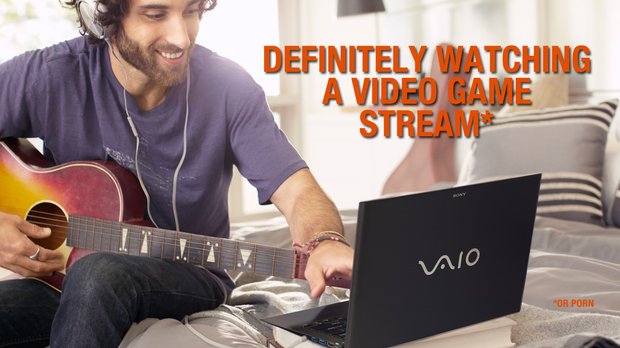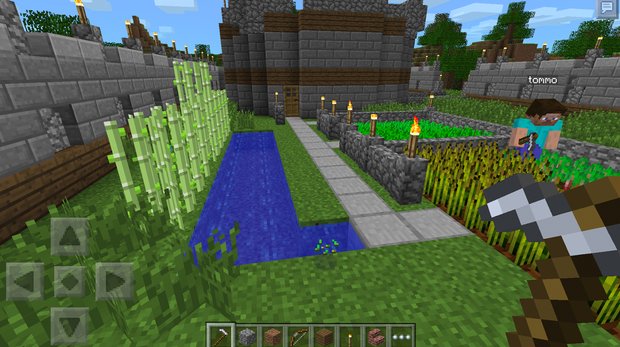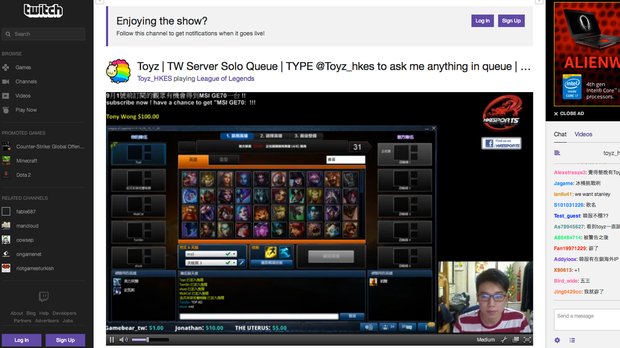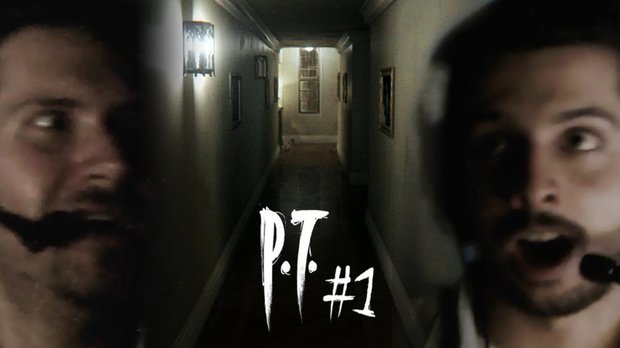Let's NOT Play: why do we watch others play games?
Games are changing. Sure, that's a startlingly obvious statement. As technology progresses, creators can do more interesting and inventive things with their creations: that's just how the world works, and you could apply that statement to almost any industry or field of science. However, it isn't all about the people who make the games or, indeed, the games themselves. Some of the biggest changes are happening away from the development studios; in our own homes. I'm talking about the way we (as players) interact with games, and how they become part of our lives. Specifically, why we've become a generation of 'game watchers' instead of simple 'players'.

The rise of streaming, sharing, and personality-lead communities has been astronomic. While there are echoes of this in the past--where kids would gather at arcades to watch 'older boys' play Street Fighter 2, or exchange stories about Final Fantasy during English class--the idea of observing someone else playing a game is relatively new. As little as five years ago, the notion of someone watching you play was seen as a badge of shame, an activity that 'girlfriends' or 'little brothers' do because they didn't really understand what was going on with your game. They wanted to be involved, and you invited them to play with the second controller, but they “just wanted to watch”.
Now, though, it's all part of the experience. In fact, some would rather tune in and see a game played on YouTube or Twitch, than actually pick up the pad themselves. At the risk of sounding like a stuffy, old-media dinosaur, I reached out to several people to ask: why? “It does seem crazy when you think about people just sitting and watching someone else play a video game,” says prominent YouTube personality Ms 5000 Watts. “It has turned into a more interactive TV show. People will make their dinner, and sit down to watch the next instalment of a Let's Play instead of watching a standard TV show.”

It's a testament to how ingrained games have become in our lives, that many will now eschew other forms of entertainment--like traditional film or TV--in favour of watching games. This is really where 'Let's Plays' come into their own. You can see, comment, and share an experience with other like minded people, as your chosen online personality steers their readers through a specific game. Obviously, it's the person actually playing that holds everything together, and while many deride insanely popular figures like Pewdie Pie as total morons, the fact is that their brand of presentation (even if it is barely coherent screeching) resonates with their followers. In other words, people tune in because that's the type of personality they like.
“I have people that watch me play anything just because they enjoy the way that I react to the games that I play,” explains Ms 5000 Watts. “A perfect example of this is my Papers, Please 'Let's Play'. It's a game where you spend the entire time looking at people's documents--as an immigration officer--and stamping passports. It's something that very few people knew about, or would choose to tune into, but because it was me playing it they tuned in and ended up really enjoying it.”

Later in the interview, Ms 5000 Watts points to the ready availability of game streams as another key to their success. Because people dedicate so much of their time to streaming--a handful are paid to do it as either a media or eSports role--you can simply tune in to see them play as your life dictates. Got a spare 30 minutes while you eat lunch? May as well watch your favourite personality play Minecraft, or League of Legends, or Call of Duty. It's more about topping up your relationship with the game when you don't have time to play yourself, rather than a total substitution. We expect to be able to access our favourite games whenever and wherever we are, and streaming allows us to do that.
Oh, and let's not forget the fact that many people tune in to make themselves better at certain games. Professional LoL streams are a goldmine for amateurs looking for killer tactics and strategies, and Let's Plays can help you get past a level (or puzzle) that you may be stuck on yourself. It’s one thing to have someone explain a solution to you; quite another to have them show you, and talk through it.
Sign up to the GamesRadar+ Newsletter
Weekly digests, tales from the communities you love, and more

However, many of the most successful YouTubers and Streamers add their own narrative (or expose viewers to very human stories, especially in eSports) to games. And that's a big reason to tune in: to see how other people interpret certain games and to share that experience with others. “They are experiencing the story of the game with the YouTuber and everyone else watching,” explains Ms 5000 Watts. “Viewers will watch the story unfold as their favourite YouTuber makes the choices and experiences the game, and then they will take to the comments section and share the experience with everyone else viewing.” It's about living vicariously via someone you admire, using them to create stories on top of stories, and sharing that fantasy with like-minded people.
This social aspect of watching games has lead to a meteoric rise in popularity for Twitch, which has recently been sold to Amazon for almost $1billion. Speaking to me before the deal, Matthew DiPietro, VP of Marketing for Twitch puts it very simply: “Gamers are social by nature, video is their native language, and Twitch is the platform where they connect.” Ok, that's a very 'marketing' response, but it makes an excellent point. People love watching stuff, and they love talking about what they've seen.

“The viewer gets the raw, real view of the gameplay without any embellishment,” says DiPietro. “Getting direct feedback from a broadcaster that you admire is a far cry from forming an opinion based on an over-produced trailer. It’s a much more real, visceral experience.” While it's true that raw footage presents a more honest look at games than pre-rendered trailers, or pre-approved marketing messages, I think it's naive to describe Streams as more real. The fear of raw footage and the democratisation of comment on it is undoubtedly why several publishers have offered online personalities kick-backs to say positive things about their games. However, even when you're dealing with a completely honest personality--which you are, the majority of the time--you're simply swapping one opinion for another.
Fact is, people watch games to see and hear what other people make of them. They want to know what's good and what isn't, and they will always be influenced by what someone else tells them. While YouTube and Twitch personalities are usually independent and therefore don't necessarily want to sell you anything, they will have an opinion or bias in the same way literally every human being does. That bias is passed on to viewers. Sure, you could argue that raw footage (no voice-over) is pure, but even the way a game is played can make it look 'good' or 'bad'. Would you buy Assassin's Creed 4: Black Flag if you just watched someone doing tailing missions for hours instead of roaming the beautiful Caribbean aboard the Jackdaw? Probably not.

Regardless of why you (hey, maybe you don't do it) tune in to see others play, there's little doubt that this is more than a phase. Streaming and sharing is here to stay, and it's changing the way that games are both made and played. You can see prominent creators starting to experiment with it; like Kojima, who created P.T. with an eye towards people streaming (and looking at streams) themselves getting scared shitless. It's proof that the interactivity of games is more than simple inputs on a controller: it's about how you weave your favourite games into other aspects of your life, and how you share gaming experiences with others.
Thing is, we've been doing this for the last 30 years, but we've only recently stepped out of the school playground and grubby forums, onto the media-rich internet proper. It isn't actually a new thing. It's just easier to access, and instead of being restricted to groups of people you could only see and touch in real life, we now have access to the majority of the world's populace. So, we've always been 'watchers' as much as 'players'... we just didn't have the same selection of channels.



